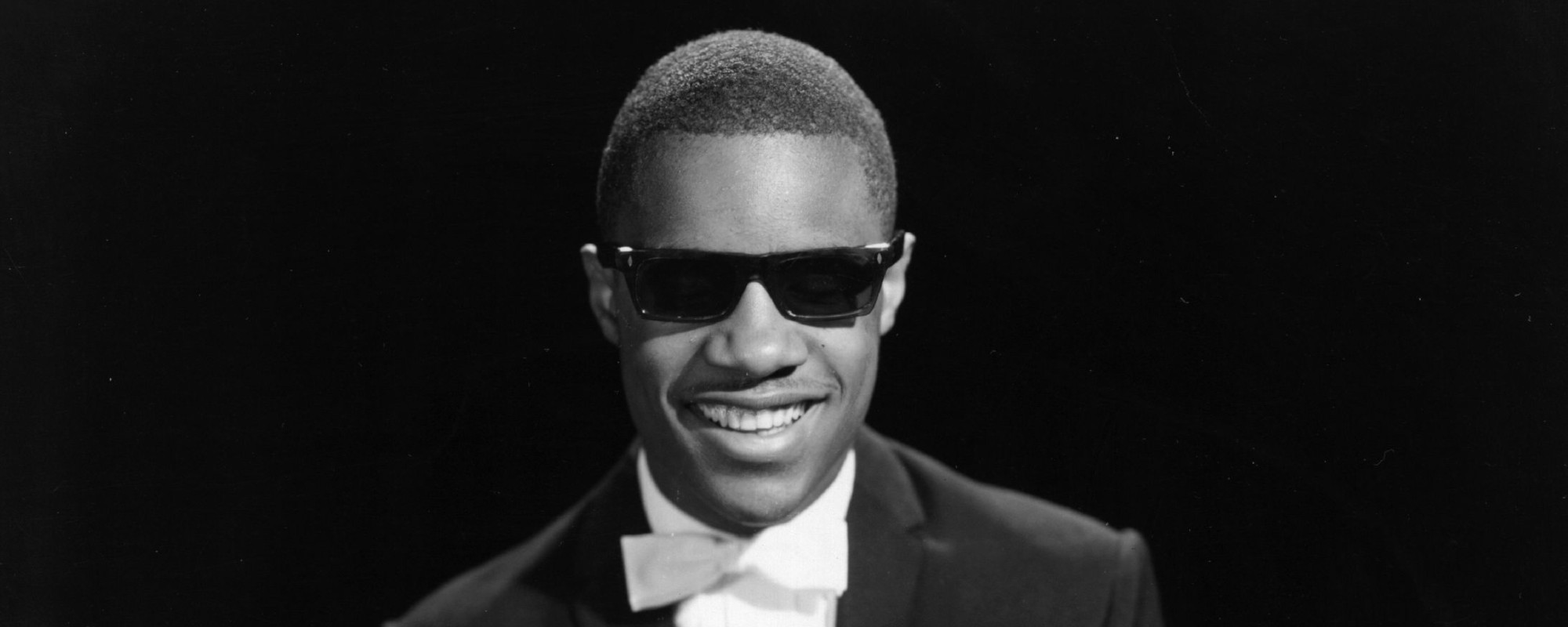Die-hard music fans can correlate the sound of a popular song to the specific decade from which it came. When modern artists recycle old sounds, the adjectives used are: ’50s doo-wop, ’60s soul, ’70s funk, ’80s new wave, ’90s grunge, and ’00s pop-punk.
Videos by American Songwriter
Then there are the songs that express an enormity about the decade that only music can. The six American songs below are perfect examples of how a few minutes of music can manage to capture the zeitgeist of a particular time.
[RELATED: 7 Songs That Defined the ’70s]
1. The ’50s: “Tutti Frutti” by Little Richard (1955)
With A-wop-bop-a-loo-mop, a-lop-bam-boom!, rock ’n’ roll was born. Little Richard’s powerful voice, pounding piano, and driving beat unleashed a new sound for the youth. Both the lyrics and Richard’s persona were radical for the time—undoubtedly paving the way for artists like Prince and David Bowie.
I got a gal, named Sue, she knows just what to do
She rock to the east, she rock to the west
But she’s the gal that I love best
Tutti frutti, oh rootie
Tutti frutti, oh rootie, ooh
2. The ’60s: “River Deep – Mountain High” by Ike & Tina Turner (1966)
A testament to the power of Phil Spector’s “Wall of Sound” recording technique, this track resembles the characteristics of its title—high swells of instrumentation and the surging power of Tina Turner’s vocals. And what greater force of nature is there than Tina Turner? “River Deep – Mountain High” has one of the greatest vocal performances ever captured on tape.
When I was a little girl, I had a rag doll
Only doll that I’ve ever owned
Now I love you just the way I loved that rag doll
But only now my love has grown
And it gets stronger in every way
And it gets deeper let me say
Then it gets higher day by day
3. The ’70s: “Superstition” by Stevie Wonder (1972)
People remember the 1970s for funk and soul, and it would be near-impossible to name a song with more funk and soul than Stevie Wonder’s “Superstition.” In 1972, Wonder was at the height of his powers. He wrote the song for Jeff Beck, but Motown’s Berry Gordy rightly predicted “Superstition” was going to be a hit. Wonder released the song as the first single from one of his masterpiece albums of the era, Talking Book.
Very superstitious, nothin’ more to say
Very superstitious, the Devil’s on his way
13-month-old baby, broke the lookin’ glass
Seven years of bad luck, good things in your past
When you believe in things that you don’t understand
Then you suffer
Superstition ain’t the way
4. The ’80s: “Beat It” by Michael Jackson (1982)
Michael Jackson is arguably the greatest pop star ever. The King of Pop released Thriller in 1982 and redefined what a pop record was capable of. “Beat It,” featuring Edward Van Halen playing a blistering guitar solo, is one of the most successful singles of all time. At the dawn of the MTV era, Jackson also perfected the art of music videos. And Thriller, of course, is the best-selling album in history.
You better run, you better do what you can
Don’t wanna see no blood, don’t be a macho man
You wanna be tough, better do what you can
So beat it, but you wanna be bad
5. The ’90s: “Smells Like Teen Spirit” by Nirvana (1991)
At the start of the ’90s, Kurt Cobain changed the music world with only four chords. “Smells Like Teen Spirit” helped usher in the grunge era and provided an anthem for Gen X. The music video added to the song’s impact at the time, as it perfectly portrayed the discomfort, angst, murkiness, and chaos intrinsic to high school. It also felt applicable to being any age in the ’90s.
Load up on guns, bring your friends
It’s fun to lose and to pretend
She’s over-bored and self-assured
Oh no, I know a dirty word
Hello, hello, hello, how low
6. The ’00s: “Seven Nation Army” by The White Stripes (2003)
Before 100,000 people in sports stadiums at a time were singing the riff to “Seven Nation Army,” the song appeared as the opening track on The White Stripes’ fourth studio album, Elephant. Since its release, the song has been adored by critics, politicians, and the general populace alike. It marked the first major hit from the garage rock revival movement and introduced Jack and Meg White at their minimalist, three-color-aesthetic best. White used a guitar to make a bass riff, capturing a sound that created a lo-fi anthem for the Aughts.
I’m goin’ to Wichita
Far from this opera forevermore
I’m gonna work the straw
Make the sweat drip out of every pore
And I’m bleedin’, and I’m bleedin’, and I’m bleedin’
Right before the Lord
All the words are gonna bleed from me
And I will think no more
And the stains comin’ from my blood
Tell me, “Go back home”
Photo by Chris Furlong/Getty Images













Leave a Reply
Only members can comment. Become a member. Already a member? Log in.